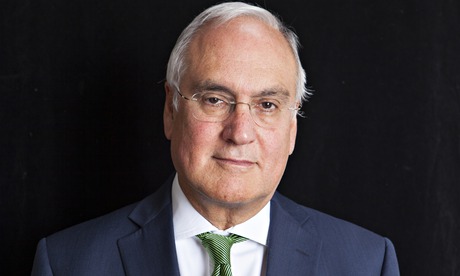Extra tuition designed to help children in England catch up on learning lost during the Covid pandemic was often “haphazard and poorly planned”, and in some cases disrupted the school day, an independent review by Ofsted inspectors has found.
The Ofsted review said that while the tutoring given through the government’s national tutoring programme (NTP) was “strong” in just over half of the 63 schools visited, “the quality of tuition varied greatly depending on the school or provider, and most teachers did not know the extent to which tutoring was having an impact”.
Amanda Spielman, Ofsted’s chief inspector of schools in England, said: “The government’s tutoring programme is potentially an important part of helping pupils catch up after the pandemic. There is evidence of tuition working effectively, but most schools and colleges lack a system to assess it properly and so do not know if that’s the case.”
In 10 of the schools visited, inspectors said that the tutoring “was haphazard and poorly planned. In these cases, the curriculum rarely aligned with what was being provided in the tutoring sessions, and there was often a lack of understanding of the [Department for Education’s] guidance”.
Inspectors also found that “poor assessment procedures” meant some schools were unable to judge when to stop tuition for pupils, while others struggled to allocate catch-up sessions that were convenient for teachers, tutors, pupils and parents.
Leaders in a fifth of the schools visited “had not thought through the risks of disrupting children’s learning” by taking them out of regular lessons, the report noted, while in some cases the tutor groups were too large to be effective.
There were also concerns at the quality of the tutors and academic mentors available through the scheme: “For instance, in one school, leaders said that the tuition given by one academic mentor was of such poor quality that they had to instruct other staff to re-teach the pupils involved.”
Stephen Morgan, the shadow schools minister, said the report “paints a damning picture of the government’s failed outsourcing” of the tutoring programme.
“The responsibility for the failings Ofsted have identified must be firmly placed at the government’s door. Tory ministers have repeatedly treated our children as an afterthought and failed to properly resource the tutoring programme their own adviser recommended,” Morgan said.
The tutoring programme has been mired in controversy since its launch, as part of the £5bn in catch-up funding to schools and colleges in England by Boris Johnson’s administration. Experts said the effort was too small to make a substantial difference to pupils, who missed out on months in the classroom, while there was concern over how much of the extra help went to disadvantaged pupils who had been hit hardest by the disruption.
Munira Wilson, the Liberal Democrat education spokesperson, said: “Tutoring could have been at the core of an ambitious catch-up plan but instead the Tories botched the contract with Randstad and spent just a third of what their own advisers said was needed. The result is that the GCSE results gap between disadvantaged pupils and their classmates is the highest in a decade.”
The national tutoring programme (NTP) originally had three strands, including “tutoring partners” and “academic mentors” contracted last year through the Dutch services consultancy Randstad. But Randstad’s involvement was ended and the DfE expanded the remaining strand, giving funds directly to school-led tutoring.
A second evaluation of the NTP, conducted by the National Foundation for Educational Research, found 63% of schools were satisfied with the NTP, although others reported difficulty finding tutors, “including being unable to identify suitable candidates in terms of subject knowledge and behaviour management”.
A DfE spokesperson said: “Over 2 million tutoring sessions have been started through the national tutoring programme and evidence highlights the positive impact that tutoring is having on both pupils’ attainment and confidence.
“We have simplified the programme by introducing school-led tutoring and providing £349m of funding directly to schools to give them greater autonomy and will continue to work closely with the sector as we move towards our target of starting 6 million tutoring courses by 2024.”











